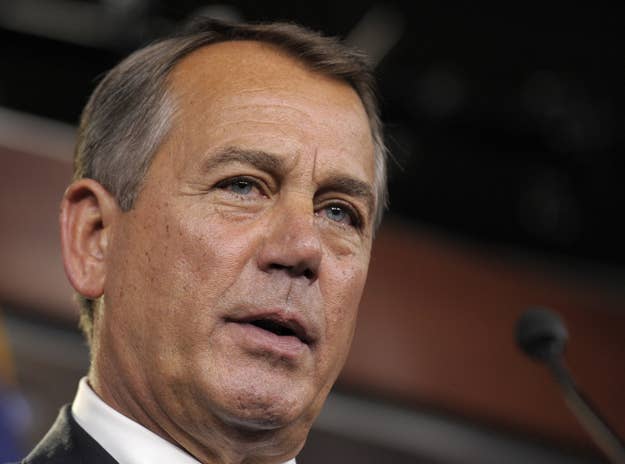
WASHINGTON, D.C. — House Speaker John Boehner Wednesday said he remains hopeful fiscal cliff negotiations will ultimately bare fruit, despite lingering differences between Democrats and Republicans about how to address the looming austerity crisis.
"I do think that the spirit of cooperation that you've seen over the past week has created an atmosphere where I think—I remain optimistic," Boehner told reporters at a press conference with House Republican leaders. "I was born with a glass half full. If I wasn't, I wouldn't be here."
Boehner and other congressional leaders are set to head down Pennsylvania Ave. to the White House Friday for the formal start of negotiations.
But the two sides will need to span a broad ravine between their respective proposals to address the looming spending cuts and tax-code changes. In particular, the parties have tangled over the best way to balance spending cuts with new revenue.
"There are ways to put revenue on the table without increasing tax rates," Boehner said, echoing statements he has made before. "There's all kinds of information and data out there."
But Boehner declined to provide specific ideas for raising revenue, he said, because it "would not be conducive to coming to an agreement with the White House."
Republican lawmakers in Congress, Boehner among them, have insisted that sufficient revenue could be attained through a mix of reforms to entitlement programs, such as Medicare, and by closing tax loopholes.
Congressional Democrats and the president, meanwhile, have contended that tax cuts on income exceeding $250,000 must be allowed to expire.
In a press conference at the White House earlier Wednesday, Obama said an extension of those tax cuts would not even be up for debate.
"What I am not going to do is extend the tax cuts for the wealthiest 2 percent, which we cannot afford," he said.
